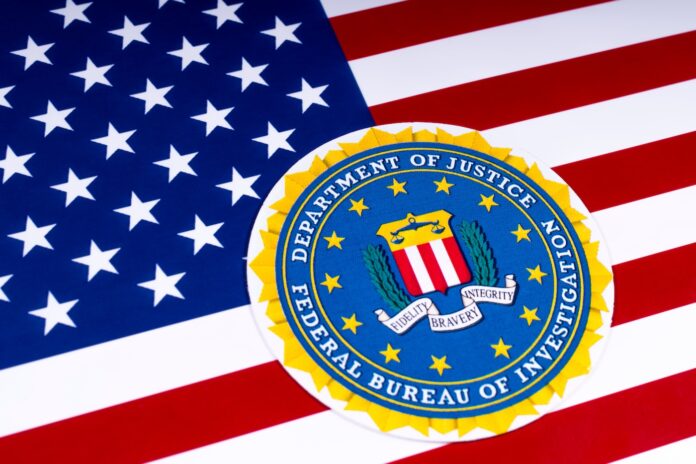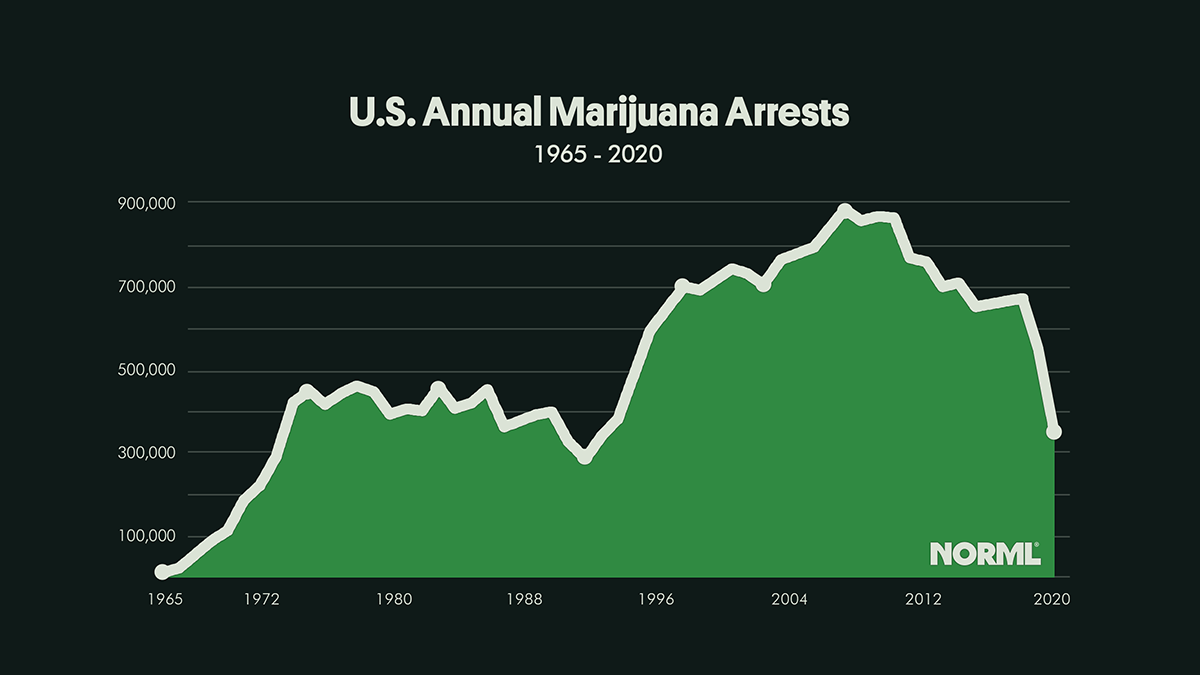WASHINGTON – Law enforcement agencies arrested 227,108 people for cannabis-related violations last year and 92 percent of the arrests were for possession, according to the latest data published by the Federal Bureau of Investigation this week. The figures likely fall short of reality with only 83 percent of agencies, representing 75 percent of the U.S. population, reporting data to the federal government. If all law enforcement agencies reported their data, the total number of cannabis-related arrests last year likely would be closer to 300,000.
While incomplete arrest figures for 2022 show a 3.47-percent uptick from 2021, the percentage of agencies reporting arrests also increased by 12 percent, invalidating any reliable year-over-year comparison.
For better context, cannabis-related violations in the U.S. peaked in 2007 with more than 870,000 reported arrests. During that year, 48 percent of all drug-related arrests were for cannabis. In 2022, cannabis-related arrests fell to about 30 percent of the total.
-
Source: NORML
In August, Health and Human Services (HHS) Assistant Secretary for Health Rachel Levine submitted the department’s rescheduling recommendation to Drug Enforcement Administration Administrator Anne Milgram. HHS recommended cannabis be moved from Schedule I—the most severe classification under the Controlled Substances Act (CSA)—to Schedule III, which would put the plant in the same category as Tylenol with codeine, anabolic steroids, and testosterone. Immediate benefits to the industry could include increased research and access to certain financial products as well as removal of tax restrictions imposed by Internal Revenue Code Section 280E.
In an effort to keep cannabis at the top of the government’s list of illicit substances, six former DEA heads and five former White House drug czars sent a letter to U.S. Attorney General Merrick Garland and Milgram last week urging them to reject the HHS recommendation to reclassify cannabis.
“Moving marijuana to Schedule III would supersize the cannabis industry in the United States by allowing them to evade IRS Section 280E and deduct business expenses,” the letter states. “We urge you to follow the science demonstrating marijuana’s high addictive potential and its lack of accepted medical use, as well as the impact rescheduling will have on law enforcement and the ability to prosecute drug trafficking organizations.”
According to the DEA’s federal trafficking resource guide, penalties for trafficking vary by weight and are not directly tied to scheduling. If the DEA moves cannabis to Schedule III, there’s no indication it would affect the penalties for trafficking.
“Attorneys and law enforcement already have one hand tied behind their back when it comes to enforcing federal marijuana laws,” the letter states. “Rescheduling marijuana, and thus reducing criminal penalties for marijuana trafficking, removes a key tool federal agents have to prosecute cartels.”
Despite the letter’s authors calling for the National Institutes of Health to fund additional research, the letter attempts to place blame for a lack of clinical trials and Food and Drug Administration-approved cannabis-derived medications on pharmaceutical companies instead of the plant’s Schedule I status under the CSA.
“Drug research, of course, is primarily funded by the pharmaceutical industry, and the cost of developing a product and bringing it to market is often $1 billion or more,” the letter states. “This may represent one reason more marijuana-based medications do not exist, versus where the drug sits in the Controlled Substances Act.”
As the current head of the DEA, the decision whether to reschedule cannabis ultimately will fall to Milgram an attorney who has occupied her position since 2021. Milgram has been tight lipped when it comes to cannabis reform, but she did call New Jersey’s medical marijuana bill “workable” in 2021 while serving as the state’s attorney general.










